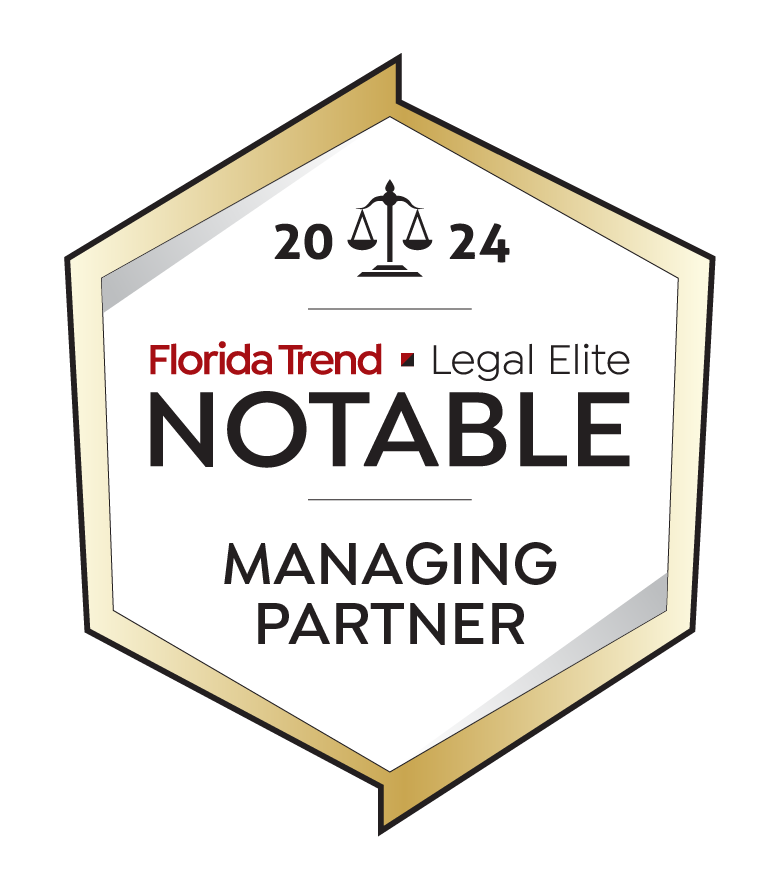When dealing with the complex world of probate and estate planning, it is crucial to have the right team to guide you. The Florida Probate & Family Law Firm, with its seasoned Tampa probate lawyers, is well-equipped to help you navigate the often complex and challenging probate process.
What is Probate?
Probate is a court-supervised process that is initiated after a person’s death to identify their assets, pay any debts or taxes they owe, and distribute the remaining assets to their rightful beneficiaries. It can be a daunting process due to the legal requirements and obligations, especially when grieving the loss of a loved one.
The Role of a Probate Lawyer
A probate lawyer, also known as an estate lawyer, is a legal professional who provides advice to executors and beneficiaries of an estate on how to manage the probate process. They help navigate the entire probate process, from filing the initial paperwork to distributing the assets and closing the estate.
Tampa Probate History
Tampa, Florida, known as the “Cigar City,” has a rich history tied to probate law. The city’s growth in the late 19th and early 20th centuries was largely driven by the cigar industry. As a result, many individuals accumulated significant wealth, leading to complex probate cases. The Tampa probate lawyers at The Florida Probate & Family Law Firm have a deep understanding of the local probate landscape and are well-equipped to handle the unique challenges that may arise.
Our team of skilled probate lawyers in Tampa have years of experience handling both simple and complex probate matters. We’re well-versed in Florida probate law and have the resources and expertise to ensure your loved one’s estate is handled professionally and efficiently. Our primary goal is to make the probate process as stress-free as possible for you.
Our services include, but are not limited to:
- Estate administration
- Will disputes and litigation
- Estate and trust litigation
- Summary administration
- Formal administration
- Ancillary administration
Tailored Legal Support
At The Florida Probate & Family Law Firm, we understand that each probate case is unique. We work closely with our clients to understand their specific needs and devise a strategy tailored to their individual circumstances. We are committed to open communication and transparency, ensuring our clients stay informed and feel supported throughout the process.
Compassionate and Comprehensive Legal Assistance
At The Florida Probate & Family Law Firm, we appreciate the emotional complexities that often accompany probate matters. Our Tampa probate lawyers approach each case with compassion, understanding, and unwavering dedication to your needs. We strive to offer comprehensive legal assistance that covers all aspects of the probate process, making it less daunting and overwhelming for you.
Contact Us to Speak With a Tampa Probate Attorney
If you need guidance navigating the probate process in Tampa, Florida, don’t hesitate to reach out to The Florida Probate & Family Law Firm. Our knowledgeable and experienced probate lawyers are here to help. Contact us through our website or give us a call to schedule a consultation and learn more about how we can support you in your probate journey.
Whether it’s the probate process or estate litigation, we’ve got you covered. Let our experienced Tampa probate lawyers handle your case with the care, diligence, and professionalism it deserves. Trust in our expertise and rest assured that we will walk this journey with you every step of the way.
Frequently Asked Questions (FAQ)
-
What is the difference between summary administration and formal administration in Florida probate law?
Summary administration is a simplified probate process used for smaller estates, where the value of the deceased’s entire estate subject to administration in Florida, excluding the value of property exempt from claims of creditors, doesn’t exceed $75,000, or that the decedent has been dead for more than two years. Formal administration, on the other hand, is a more detailed process used for larger or more complex estates, and it usually takes a longer time to complete.
-
What is ancillary administration in probate law?
Ancillary administration is a separate probate process that occurs when a decedent owned real property or certain types of personal property in a state other than their state of domicile. If a Florida resident passes away owning property in another state, an ancillary probate process might be required in that state.
-
What is the probate process when there are multiple beneficiaries?
When there are multiple beneficiaries, the probate process becomes slightly more complex as the estate must be divided among all beneficiaries according to the deceased’s will or, if no will exists, according to state law. Disputes between beneficiaries can also occur, which may require the intervention of a probate lawyer.
-
What is the role of an executor in the probate process?
The executor, also known as the personal representative in Florida, is responsible for managing the estate during the probate process. Duties typically include gathering assets, paying debts and taxes, maintaining property until it can be distributed or sold, and eventually distributing assets to beneficiaries.
-
What happens if the deceased had debts?
If the deceased had debts, they generally need to be paid out of the estate before any assets are distributed to beneficiaries. If the estate doesn’t have enough assets to cover the debts, it could be declared insolvent, and the beneficiaries may not receive anything. Creditors typically have a specific amount of time to make claims against the estate.
-
What are some common probate disputes?
Common probate disputes can include disagreements over the interpretation of the will, concerns about the executor’s actions, disputes between beneficiaries, and challenges to the validity of the entire will or certain provisions.
-
Can a probate lawyer help with estate planning?
Yes, a probate lawyer can also provide assistance with estate planning, helping individuals create a comprehensive plan to protect their assets, minimize taxes, and dictate how their estate should be handled after their death. They can also help with setting up trusts, drafting a will, and providing advice on estate tax laws.
-
What does a probate lawyer do in the case of intestacy?
In the case of intestacy, when a person dies without a will, a probate lawyer can help manage the estate according to Florida’s intestacy laws. They can assist with the appointment of a personal representative and guide the representative through the process of dividing and distributing the estate’s assets.
-
What does it mean when a will is in probate?
When a will is in probate, it means that the document is being reviewed by the court to ensure its validity. The executor named in the will is tasked with collecting and managing the deceased’s assets, paying any debts and taxes, and distributing the remaining assets to the named beneficiaries.
-
What can I do if the executor isn’t doing their job?
If an executor isn’t fulfilling their responsibilities, beneficiaries have the right to petition the court to have the executor removed. In such cases, the court might appoint a new executor. This is a complex process and generally requires the assistance of a probate lawyer.



























